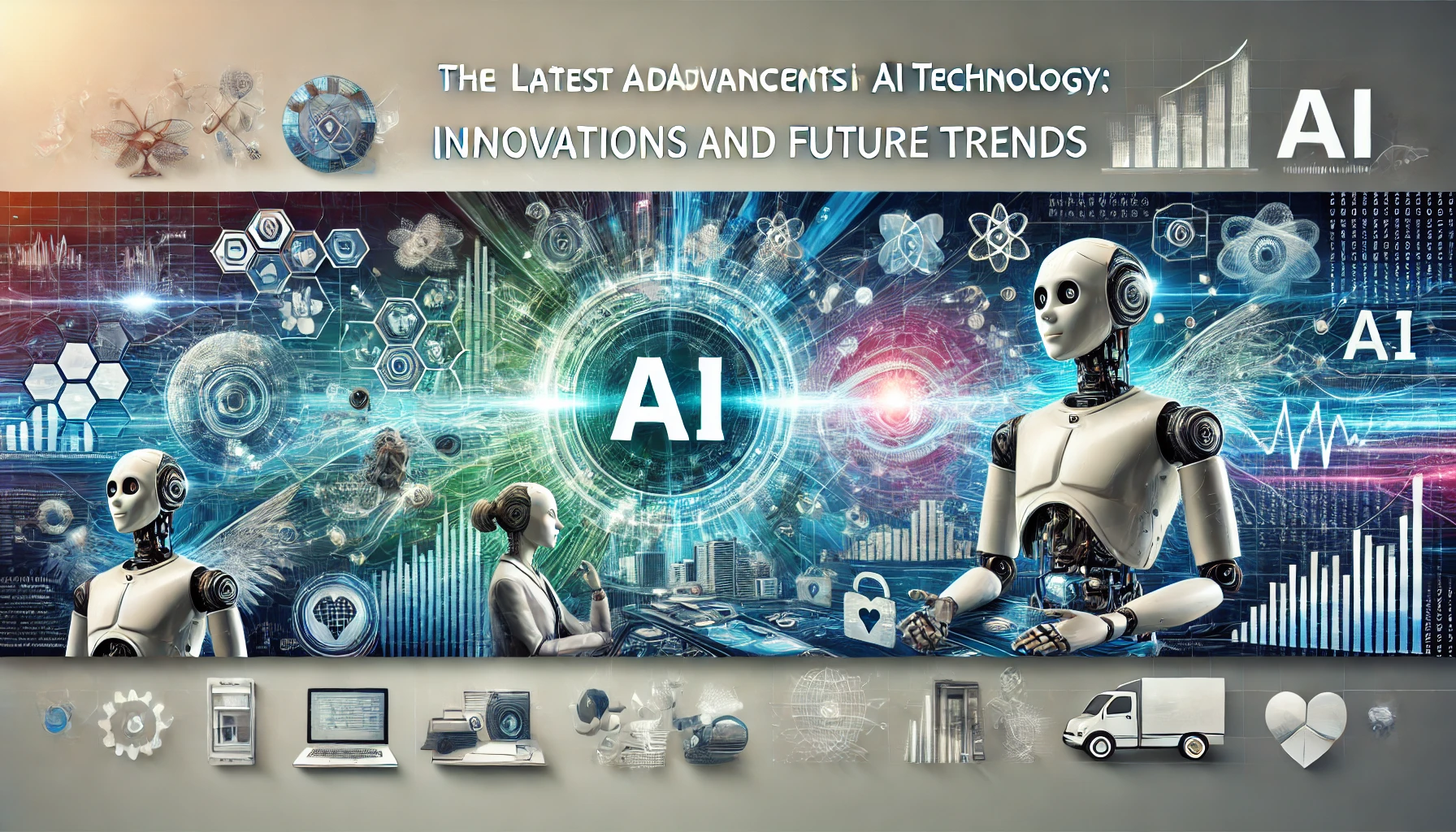The Latest AI Advancements in Technology: Innovations and Future Trends
AI advancements have rapidly transformed various industries, driving innovation and reshaping the future of technology. From healthcare to finance, AI applications are becoming increasingly sophisticated, offering unprecedented opportunities and challenges. This blog explores the latest AI advancements, their applications in different fields, the role of research, and the ethical considerations shaping the future of AI.
General AI Advancements
Overview of AI Advancements
AI advancements refer to the continuous improvements and innovations in artificial intelligence technology. These advancements include new algorithms, machine learning models, and AI applications that enhance the capabilities of machines to perform tasks that typically require human intelligence.
Key Areas of AI Advancements:
- Machine Learning: The development of new machine learning models that improve the accuracy and efficiency of AI systems.
- Natural Language Processing (NLP): Advancements in NLP enable AI systems to understand and generate human language more effectively.
- Computer Vision: Enhancements in computer vision allow AI to interpret and analyze visual information with greater precision.
Latest AI Technology
The latest AI technology encompasses a wide range of tools and platforms that leverage AI to solve complex problems and create new opportunities.
Notable Technologies:
- Deep Learning Frameworks: Platforms like TensorFlow and PyTorch facilitate the development of sophisticated AI models.
- AI Hardware: Specialized hardware, such as GPUs and TPUs, accelerates the training and deployment of AI models.
- Cloud AI Services: Cloud providers offer AI services that make it easier for businesses to integrate AI into their operations.
AI Innovation
AI innovation drives the development of new applications and solutions that address real-world challenges. Innovations in AI are often driven by research and collaboration between academia and industry.
Examples of AI Innovation:
- Autonomous Vehicles: AI advancements enable the development of self-driving cars that can navigate complex environments.
- Smart Assistants: Virtual assistants like Siri, Alexa, and Google Assistant utilize AI to provide personalized assistance and perform tasks.
- Predictive Analytics: AI-powered analytics tools help businesses make data-driven decisions by predicting future trends and outcomes.
AI Future Trends
The future of AI is shaped by ongoing research and technological advancements. Understanding these trends can provide insights into the direction of AI development.
Future Trends:
- AI Integration: AI will become more integrated into everyday devices and applications, enhancing their functionality.
- Human-AI Collaboration: AI systems will increasingly collaborate with humans, augmenting their capabilities and improving productivity.
- Ethical AI: There will be a greater focus on developing ethical AI systems that are transparent, fair, and accountable.
AI Applications in Various Fields
AI in Healthcare
AI in healthcare has the potential to revolutionize patient care, diagnostics, and treatment. AI advancements in this field are improving the accuracy of medical diagnoses and enabling personalized treatment plans.
Key Applications:
- Medical Imaging: AI-powered imaging tools assist radiologists in detecting abnormalities and diagnosing conditions.
- Predictive Analytics: AI algorithms analyze patient data to predict disease outbreaks and identify at-risk individuals.
- Virtual Health Assistants: AI-driven chatbots provide patients with medical advice and support, improving access to healthcare services.
AI in Finance
AI advancements in finance are transforming how financial institutions operate, offering new ways to manage risk, detect fraud, and optimize investments.
Key Applications:
- Algorithmic Trading: AI algorithms execute trades at high speeds and with greater accuracy, maximizing returns.
- Fraud Detection: AI systems analyze transaction data to identify and prevent fraudulent activities.
- Personalized Financial Advice: AI-driven platforms provide personalized investment advice and financial planning services to clients.
AI in Education
AI in education enhances the learning experience by providing personalized instruction, automating administrative tasks, and enabling new ways of teaching and learning.
Key Applications:
- Adaptive Learning: AI-powered platforms adjust the content and pace of learning based on individual student needs.
- Automated Grading: AI systems grade assignments and exams, freeing up time for educators to focus on teaching.
- Virtual Tutors: AI-driven tutors provide additional support to students, helping them understand complex concepts and improve their performance.
AI Applications
AI applications are diverse and span various industries, demonstrating the versatility and impact of AI technology.
Examples of AI Applications:
- Customer Service: AI chatbots handle customer inquiries and provide support, improving response times and customer satisfaction.
- Supply Chain Management: AI optimizes supply chain operations by predicting demand, managing inventory, and reducing costs.
- Environmental Monitoring: AI systems analyze environmental data to monitor pollution levels, predict natural disasters, and develop sustainable practices.
AI Research and Ethics
AI Research
AI research is the foundation of AI advancements, driving the development of new algorithms, models, and applications. Research in AI spans multiple disciplines, including computer science, mathematics, and cognitive science.
Key Areas of AI Research:
- Reinforcement Learning: Researchers explore ways to improve how AI systems learn from interactions with their environment.
- Generative Models: AI models that generate new data, such as images or text, based on existing data.
- Explainable AI: Efforts to make AI models more transparent and understandable to users.
AI Ethics
AI ethics is a critical consideration in the development and deployment of AI systems. Ethical AI ensures that AI technologies are used responsibly and do not cause harm.
Key Ethical Considerations:
- Bias and Fairness: Ensuring that AI systems are free from bias and provide fair outcomes for all users.
- Transparency: Making AI systems transparent and understandable to users, enabling them to trust and make informed decisions.
- Accountability: Holding developers and organizations accountable for the decisions and actions of AI systems.
Conclusion
AI advancements are driving significant changes across various industries, offering new opportunities and challenges. From the latest AI technology to applications in healthcare, finance, and education, AI continues to transform the way we live and work. Ongoing research and ethical considerations will shape the future of AI, ensuring that it is used responsibly and for the benefit of society.
As we explore the latest AI advancements, it is essential to stay informed and engaged with the developments in this rapidly evolving field. For more insights and educational resources, visit Regent Studies. Understanding the complexities of AI technology and its applications will help you navigate the future of AI and its impact on our world.
The journey of AI advancements is far from over, and the future holds even more exciting possibilities. By staying informed about the latest trends, applications, and ethical considerations, we can ensure that AI continues to be a force for good, driving innovation and improving lives across the globe.




